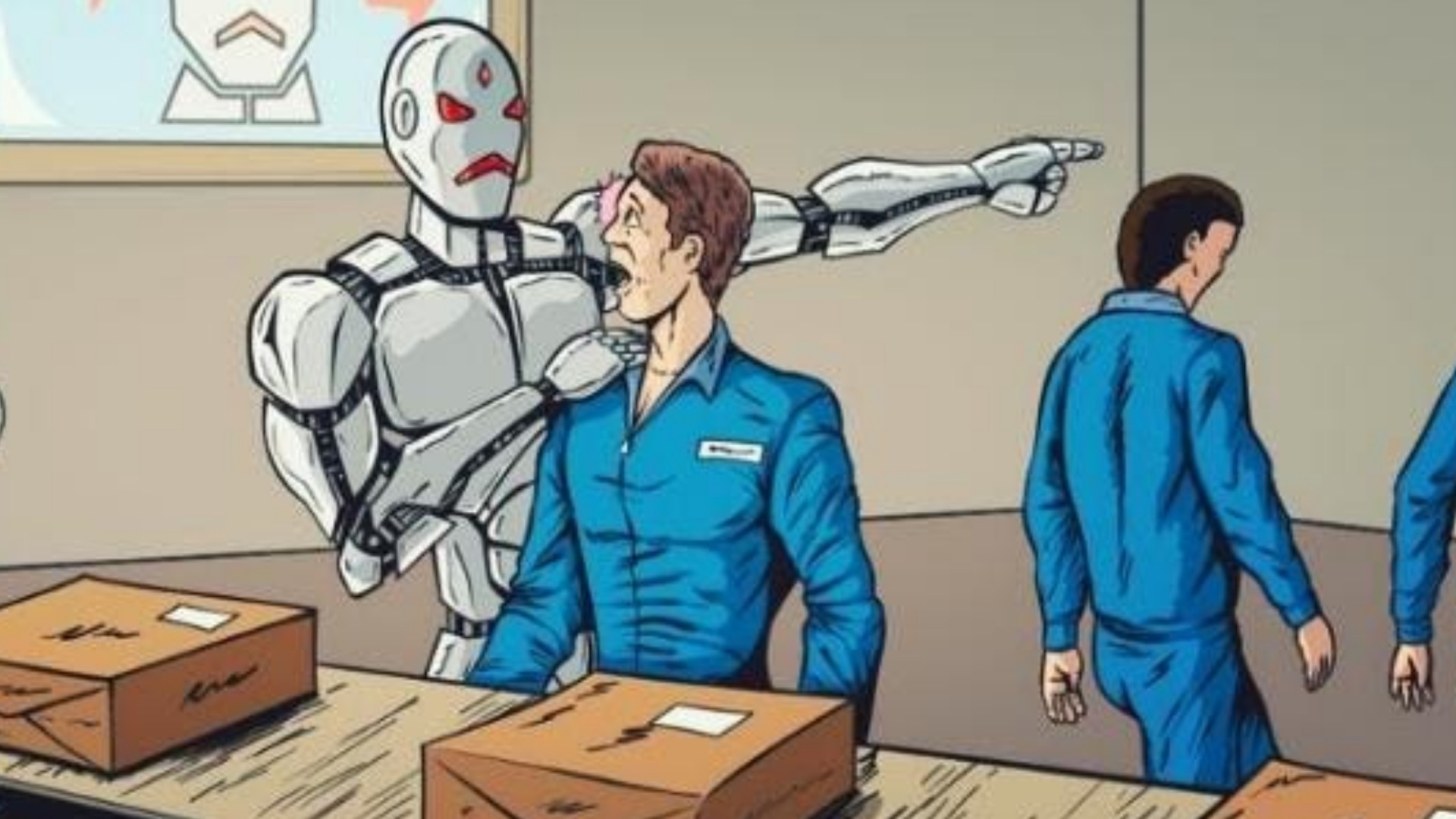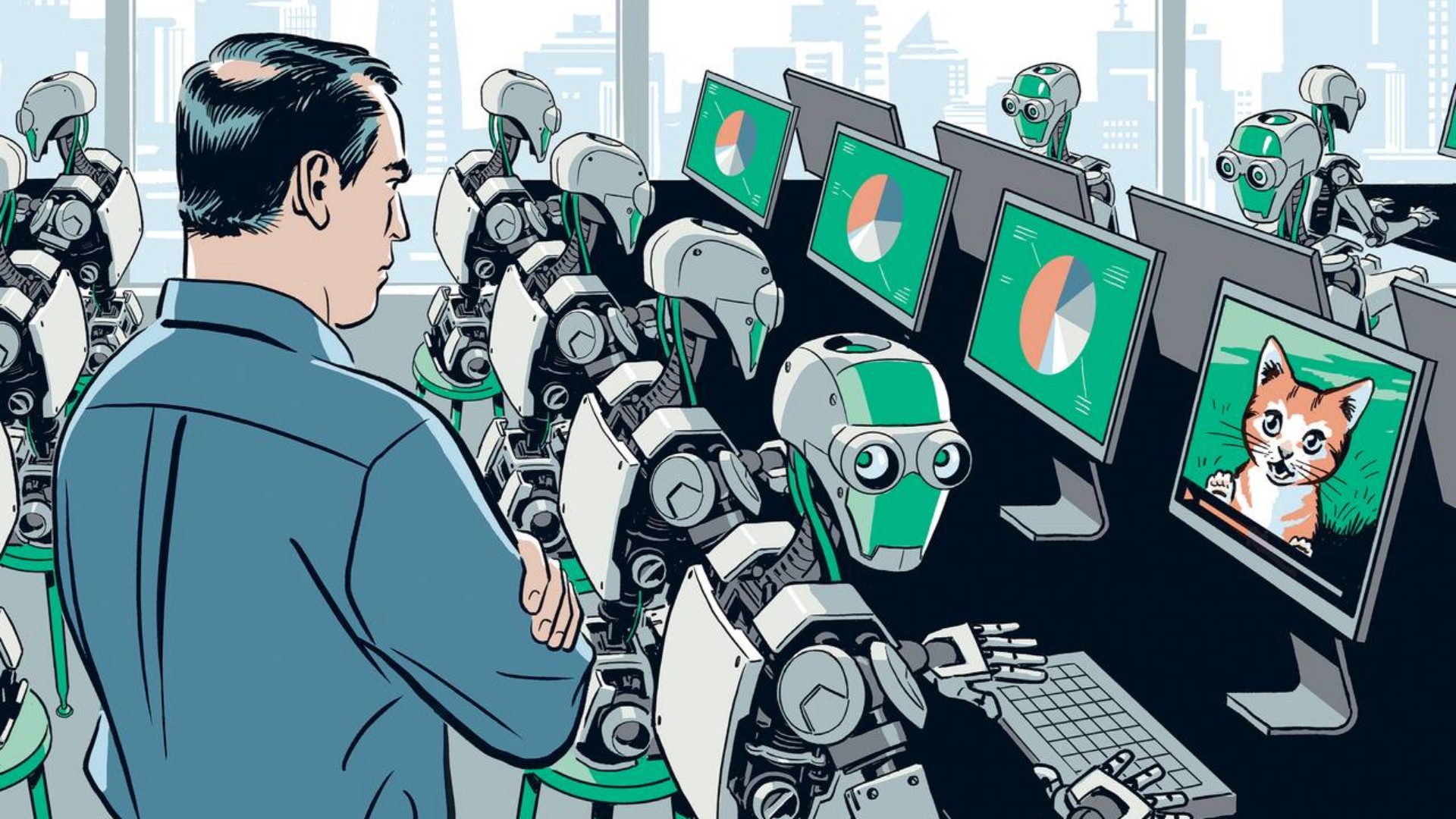11 Mar, 2020 · 3 min read
2023 was the year that artificial intelligence (AI) took hold, marking a transition from experimental to essential. As we step into 2024, businesses are retooling: AI is no longer a fringe technology but a core component of business strategy. But what does this mean for the workforce? Will the surge in AI lead to job displacement or a decline in market competitiveness for those lagging in AI adoption?

The image caption referencing the above image
Last year, AI broke new ground across the entire market. AI is not anything new; in fact, it's been maturing for a while. Specifically, generative AI became commonplace with the release of ChatGPT at the end of 2022. With new publicity, suddenly all AI received a boost in interest and it took the business technology conversation across multiple market verticals: promising to fundamentally shift how we access knowledge and process data. Pandora's box was opened.
As we move into 2024, AI is the biggest buzzword in boardrooms and workplace conversations worldwide. You may have been part of a few such conversations, if not directly involved in the planning. For 2024, businesses are earmarking substantial investments for AI integration, with a focus on enhancing efficiency, customer experience, and data-driven decision-making. Industries across the board are pioneering innovative AI applications and integrations to reduce costs, enhance processes/productivity, and create new opportunities… all resulting in better business value.
If you don't think this will apply to you, please pay attention: insights from industry leaders suggest a consensus: the integration of AI is not a matter of ‘if but ‘when.’ In 2023, there were a series of layoffs throughout the market that hinted at optimization post-stimulus funds drying up. I'm telling you the layoffs will continue to be commonplace.
At the end of 2023, we were greeted with the news of Google looking to reduce another 30,000 roles in their Ads division based on optimization brought on by AI and automation. This is likely not a heartless move brought on by greed: the ad business is Google's bread-and-butter workforce for profitability. Rather, this is a response to increasing costs in the ads market combined with maturity in AI solutions. When faced with insolvency, businesses will chose to offsetting human labor with AI. It's only a matter of time this spreads like wildfire throughout the market.
Moving into 2024, I fully expect AI to continue to reshape the market. There are two scenarios that will shake out in many businesses:
It's clear: both scenarios spell trouble for workers. Either businesses will ignore / fail to adopt AI, resulting in a failed business model, or adopt AI and maintain a competitive position in the market. There's a pressing need for skill transformation and adaptation. Unfortunately, not all business will be proactive enough. This is why it's important that each one of us, regardless of what a business chooses to do, evolves alongside technological advancements, embracing new roles and responsibilities that AI and automation bring forth.

https://medium.com/MAX/800/1*GQM0ZLCZVLTBD_9XWJGYNW.JPEG

https://1.medium.com/MAX/800/1*GQM0ZLCZVLTBD_9XWJGYNW.JPEG
The silver lining in this revolution is there is time to be proactive, but don't wait. In 2024, have you made any resolution involving professional growth and diversification? Does it involve upskilling in AI? I'm not referring to pursuing advanced training in AI machine learning. This is taking your existing skills and learning how to enhance them. You have a skill foundation… build on it with AI! AI is a tool… a force multiplier to boost creativity, offload simple tasks, reduce research time, and speed up learning. You may have played around with AI or maybe this is the first time someone has spoken to you about it. That's perfectly fine: many people haven't yet been exposed to it because they haven't been affected by it. Here's where to start: